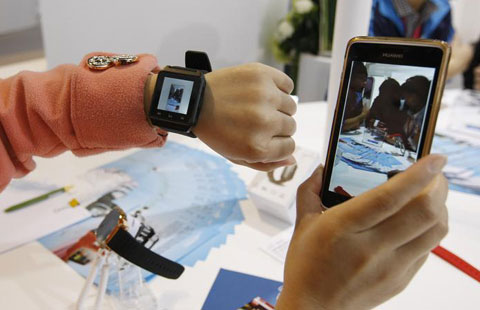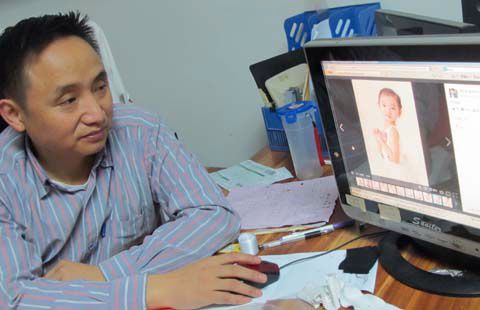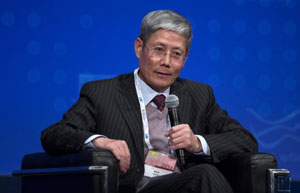Outrider for the delivery brigade
By Joseph Catanzaro (China Daily) Updated: 2014-04-28 16:14Zhao generally starts work at 7 am and works until about 6 pm, six days a week, in sunshine, rain or snow.
The base rate of pay is about 5,000 yuan. The more deliveries he makes, the more he is paid.
"I make about 100 deliveries a day, about 600 to 700 deliveries a week."
Because of population density, Zhao says he does not have to travel that far.
"I only travel about 10 km each day. The goods are different depending on the route. My regular route takes in Beijing's equivalent of Silicon Valley, so I mostly deliver electronic devices."
The medium-sized warehouse and delivery depot Zhao works out of is a cornucopia of goods.
The manager of the Haidian delivery terminal, Tao Jiangpeng, says it is a waypoint between China and the world.
"We make 3,000 deliveries a day. We have 27 employees here, and their average age is about 28. We sell goods from overseas, like Apple products, and a lot of cosmetics from Europe. We sell Australian oranges and will soon be selling Australian milk."
Zhao says some of his deliveries point to a changing and affluent China.
Recently he delivered a ring worth 10,000 yuan, he says.
"It was a gift from a husband to his wife."
In a nod to the increasingly mobile labor market, where workers frequently change jobs, Tao says Zhao's four years at the station make him one of the longest-serving employees.
Zhao says this is because many of the younger generation think only of themselves. But he has a family to support.
"My wife is a waitress back in my hometown. We have a 9-year-old son. I miss them, and try to get home every two months. I send most of my pay to my family. I can live on 2,000 yuan a month. I work so my family can have a better life."
Despite being separated from his family, "it's a good job", he says.
"There are university graduates who earn less than me, and that makes me feel proud."
One of the things Zhao finds difficult to fathom is the fact that consumers in some Western countries wait days, or even weeks, for an order to be delivered.
"In metropolitan cities like Beijing and Shanghai there are two different types of delivery service," he says.
"If you order the goods before 11 am, you get them in the afternoon, with no extra charge. The other is guaranteed delivery within three hours, which costs 40 yuan.
"A Chinese customer would be angry if we took more than a day to deliver something."
On his one day off each week, Zhao spends a lot of time sleeping in his rented, single -room bungalow on the edge of the city.
If he has the time and energy, he loves going to karaoke with his friends from work.
His favorite foreign film is The Fast and the Furious.
"It's speedy, like me," he jokes. "I drive safer than those actors, but faster is better."
Zhao says he knows much of the warren-like maze that makes up Beijing's back streets by heart. In the rare instance he cannot find an address, his alternative to Internet maps is stopping to ask someone for directions.
Zhao says he does not know where his family will eventually settle, or even when they will all live together again. But each day's work takes him closer to his goal.
"I want to save enough to send my son to university. I want him to be better than me, to be a scientist or something. I want him to have a good life."
Zhao jumps on his bike and rides away. There are deliveries to be made.
Xie Wenjia contributed to the story.
- CCB beats estimates with 10% profit rise
- WH Group seen pricing HK IPO near bottom: IFR
- Self-taught chef cooks up good sales
- In education, vocation is lesson
- The dream and reality for young Chinese workers
- Industrial profits rebound in March
- Insurance industry struggles to attract recruits
- Stop pork from becoming easy meat

















